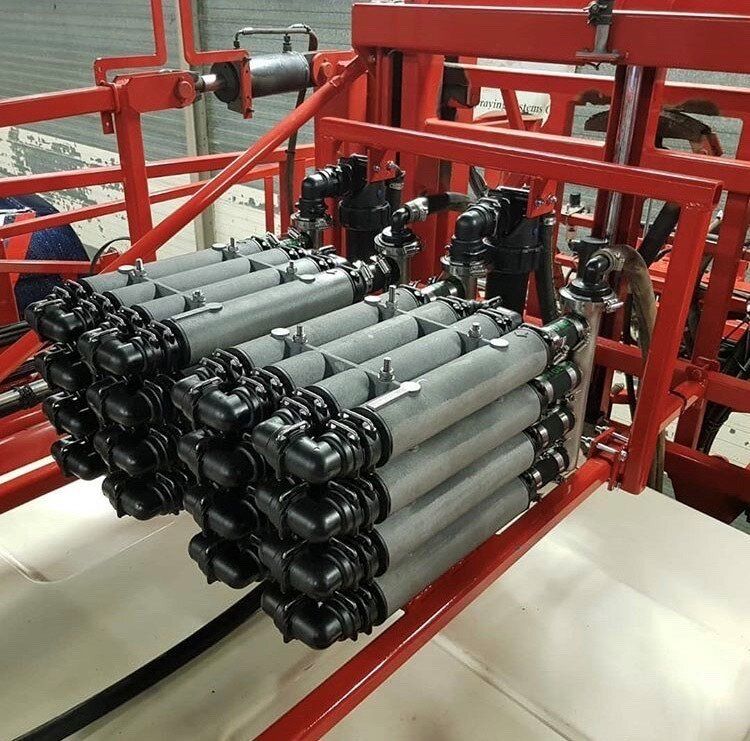MagGrow, an Irish agtech startup harnessing magnetism to make crop spraying more accurate and less chemically intensive, has closed its Series A round at €6 million ($7.1 million).
Impact investor Astanor Ventures led the round, joined by similarly impact-minded WakeUp Capital; various existing shareholders also contributed, but opted to remain unnamed.
In a statement, Hendrik Van Asbroeck of Astanor — now a MagGrow board member — described growing regulatory action against the overuse of pesticides as one reason his company had been keen to invest. Across the EU, he noted, ambitious targets of a 50% reduction in pesticide use by 2030 have been set, and MagGrow’s technology will be “a crucial enabler of this transition.” He pointed to how the company’s “farmer-friendly hardware reduces drift, increases coverage, and significantly reduces the impact pesticides have on our water, soil, and the food we eat.”
Speaking to AFN, MagGrow founder and CEO Gary Wickham went into detail about some of the spray tech his firm has built to “solve the compromise between drift and coverage associated with conventional spraying.” His team’s research and development strategy centers around the use of magnetics to create and disperse finer droplets across fields in a way that he says makes those drops stay where they are supposed to. The hope is that this reduces problems like chemical runoff – or lawsuits from neighboring farmers responding to errant wafts of toxic spray.
“There’s a lot of rubbish out there about the magnetic treatment of water,” Wickham said, which is why MagGrow dovetailed with world-class university research on the subject. To get the science right, he explained, the startup teamed up with research institutions like AMBER (Advanced Materials and BioEngineering Research), a Science Foundation Ireland-funded center that provides a partnership between leading researchers in materials science and industry. The team also has a crop science and industrial engineering presence in the UK through Harper Adams University and Farm 491. (MagGrow anticipates opening its state of the art agricultural research facility in the UK in early August.)
After spending €10 million to date on the science behind MagGrow’s technology, the firm moved to the commercial roll-out phase of its Tractor Boom product through channel partners like Trimble Ag. According to the company, farmers typically see a return on investment of one year or less just on chemical savings, as well as healthier and less diseased crops due to the higher crop coverage. The increased coverage also supports a reduction in labour and fuel requirements. A key selling point for farmers is the fact that there is virtually no maintenance with no moving parts, cables, electrical wires, or power supply. Beyond this hardware play, the team is exploring spraying-as-a-service models and might adopt these when conceiving solutions for emerging economies or smallholder farms less willing to finance up-front costs.
What’s your view on the future of crop spraying? Drop a note to [email protected]





